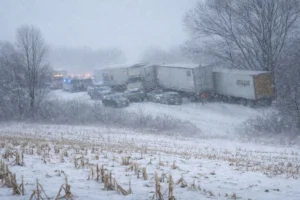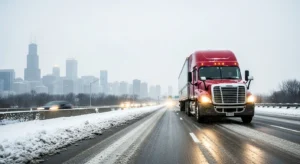Tesla found partially liable in a fatal crash involving its Autopilot driver assistance system.
Tesla has been found partially responsible for a fatal crash involving its Autopilot driver assistance system, in a case already being described as the first “nuclear verdict” against autonomous vehicle technology. The ruling could have significant legal implications for the entire automotive industry as it moves toward greater automation.
A federal jury in Florida ruled that Tesla must pay 33% of a $129 million damages award, in addition to $200 million in punitive damages. The verdict relates to a 2019 crash in Key Largo, where a Tesla operating in Autopilot mode ran a stop sign and collided with a parked vehicle, resulting in one death and serious injuries to another person.

Autopilot: misleading advertising?
Tesla’s Autopilot system is a Level 2 driver assistance technology that includes features such as automatic steering, emergency braking, and collision warnings. Despite these capabilities, Tesla warns that drivers must keep their hands on the steering wheel at all times. However, the lawsuit related to the 2019 crash argues that the company made misleading and confusing statements about the system’s actual capabilities.
According to the plaintiffs, Tesla’s marketing promoted Autopilot as if it were a fully autonomous system. As a result, the driver was using their phone, believing the system would handle the situation entirely on its own, which tragically ended in a fatal accident. It is also alleged that Tesla was fully aware of the misuse of its technology by drivers but failed to implement effective measures to prevent it.
The jury agreed with the plaintiffs’ arguments, concluding that Tesla misled consumers about Autopilot’s capabilities — starting with the system’s very name. A key element in the case was a promotional video showing a Tesla navigating city streets without a driver. Elon Musk himself promoted the video, claiming the car was “driving itself (with no human input at all),” which, according to the plaintiffs, created a false perception and encouraged overreliance on a system that still requires active supervision.

A “nuclear verdict” that could change the industry
Despite years of controversy, investigations, and accidents involving Autopilot and Full Self-Driving, Tesla had so far avoided direct legal liability. However, this verdict could mark a turning point in the regulation of autonomous vehicles.
In recent years, the National Highway Traffic Safety Administration (NHTSA) has repeatedly investigated Tesla for misuse of its driver assistance systems. A 2021 report found that Tesla’s driver engagement monitoring was inadequate for the operational capabilities of Autopilot, creating a critical safety gap.
Following the verdict, Elon Musk stated on social media that the company will appeal the decision. The appeal will be reviewed by the Eleventh Circuit Court of Appeals, and its outcome could be pivotal for the future of autonomous driving in the United States.
In the meantime, legal experts and lawmakers note that this case could help establish a stricter legal framework for how automated driving systems are designed, marketed, and monitored.

Miles of love: stories of truckers and their four-legged co-pilots
The love between truckers and their pets is a strong bond, and these stories will surely warm your soul. Love manifests itself in many ways,

Cargo theft report 2025: $725 million in losses
Verisk CargoNet reports that cargo theft crime volumes remained stable, with a sharp increase in total losses. Verisk CargoNet’s 2025 report stated that the total

Ground and Air Transportation Brace for a Weekend of Cancellations and Delays
A historic cold wave is set to disrupt ground and air transportation across the United States, bringing cancellations, delays, and operational restrictions to highways, airports, and essential services throughout the weekend. Federal authorities have activated emergency plans in response to a major winter storm expected to deliver snow, ice, and extreme temperatures to large portions of the country.

Geopolitical tensions and the dispute between Trump and the Federal Reserve
The United States is going through a complex geopolitical environment along with internal tensions between President Donald Trump and the Federal Reserve. In the latest

Polar Vortex Puts U.S. Roads on Alert
A powerful polar vortex outbreak is triggering a widespread winter storm across the United States, bringing snow, ice, and extreme cold to major freight corridors. The event poses a serious risk to trucking operations, road safety, delivery schedules, and commercial vehicle insurance exposure.

DOT unveils possible AI strategy to enforce CDL regulations
The DOT is looking to adopt AI and advanced data analytics to improve the accuracy and effectiveness of enforcement measures. On January 14, the 105th
